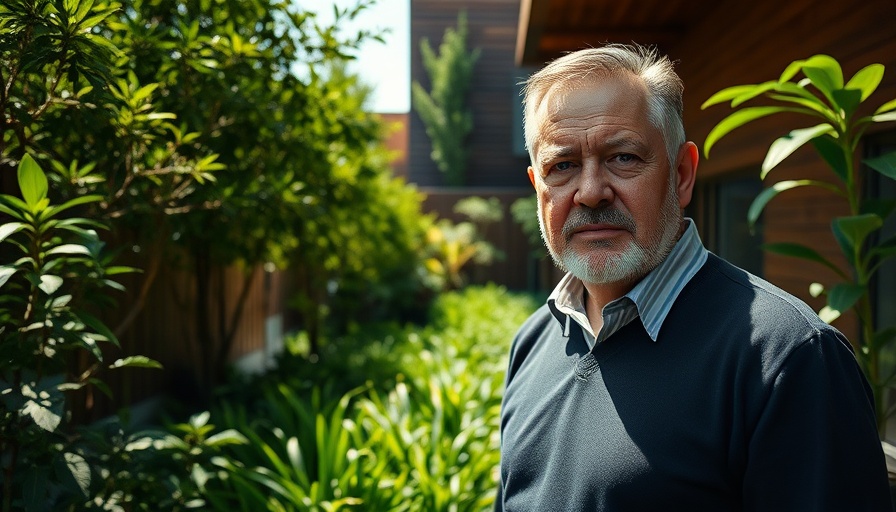
The Unraveling of the Condo Dream
For many, owning a condo in urban areas like San Francisco was once seen as a stepping stone to homeownership. However, a confluence of rising costs and an evolving market dynamics has shifted this perspective. Take David Polifko, the HOA board president at The Village at Petrini Place, who bought his unit in 2010 hoping to capitalize on the neighborhood's growth. Fast forward to today, and his monthly homeowners association (HOA) dues have skyrocketed from $500 to $1,100, significantly outpacing general inflation rates. While housing prices once seemed primed for ascent, several factors are now leading to a grim reevaluation of condo ownership in the Bay Area.
Understanding the Financial Burden of Ownership
The landscape of condo ownership is fraught with challenges. Lurking in the shadows is the recent surge in construction costs, which have contributed to steep increases in renovation expenses. Polifko recalls a staggering $600,000 expenditure for repairs due to new state legislation regarding balcony safety—costs that ripple through the finances of all residents. Now with rising insurance premiums, one HOA saw its shared insurance policy cost jump from $98,000 to nearly $1 million. This translates to significant per-unit costs, eating away at potential savings and turning what was once a potentially lucrative investment into a financial drain.
The Impact of Rising Rates and Blacklisted Properties
As interest rates climb, prospective homebuyers face even more barriers. Data from Compass indicates that condo values in San Francisco fell by 6% in the last year, a stark contrast to the peak market conditions of 2019. Selling a condo has become more arduous; today, they take nearly twice as long to sell compared to single-family homes. A newly developed 'mortgage blacklist' by major government-backed entities like Fannie Mae and Freddie Mac has added to the confusion. This list includes approximately 780 condo complexes deemed risky due to insufficient insurance or necessary repairs. With many buildings coded onto this list since February, buyers are becoming increasingly wary, deterring them from making offers on units.
The Emotional Toll on Homeowners
For residents like the one mentioned by Polifko, the emotional burden of potential loss weighs heavily. Purchasing a condo for $675,000, the individual now grapples with unanticipated repair costs after discovering structural issues, illustrating the precariousness of condo investments. The pressure extends beyond financial aspects; it encompasses communities facing turmoil, distrust in property viability, and anxiety over individual housing security.
Looking Forward: What Does This Mean for Potential Buyers?
As condo owners and prospective buyers navigate this volatile environment, reflections on previous market trends offer insight into potential future trajectories. The investors, doubting the viability of condos as starter homes, may look towards other housing options, such as single-family residences, even if they stretch budgets. Others could explore co-ownership models or intentional communities as alternative pathways. It begs the question: is this market reset an opportunity for a more sustainable and equitable real estate future?
Unique Benefits of Staying Informed
Understanding the current market dynamics empowers individuals to make informed decisions about their homes and financial futures. The shifts in the condo market represent broader trends in urban housing, emphasizing the importance of being knowledgeable about property conditions, community resources, and navigating local regulations. Awareness can help mitigate risks and foster a resilient approach to potential home investments.
Recommendations for Buyers
For those currently considering condo purchases, here are a few actionable insights: research the property’s history, assess its maintenance track record, and consult with reliable real estate advisors. Moreover, understanding community regulations and emerging trends can equip buyers with a strong foundation as they venture into this changing market landscape.
As the conversation surrounding condos and homeownership evolves, it’s crucial to take proactive steps to become educated participants in the housing narrative. Whether it’s discussing concerns with your HOA or engaging with local government to understand property necessities, taking ownership of the situation can foster a more secure housing future.
In times of change and uncertainty, being well-informed can be an invaluable asset. If you're interested in how these dynamics play out in your community or want to stay updated on the San Francisco housing market, signing up for local news updates may be worthwhile. The insights garnered can provide you with context and foresight to navigate your path forward effectively.
 Add Row
Add Row  Add
Add 




 Add Row
Add Row  Add
Add 

Write A Comment